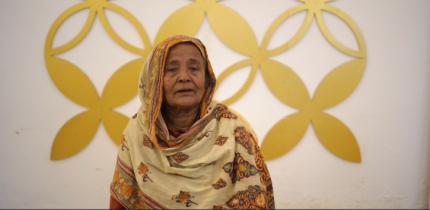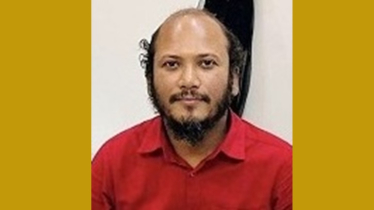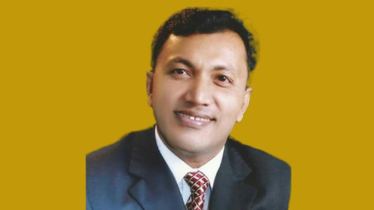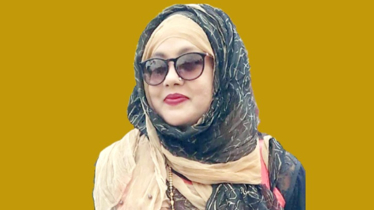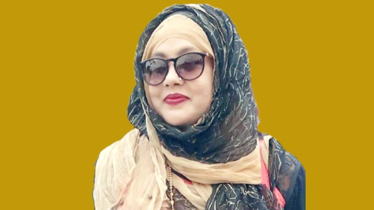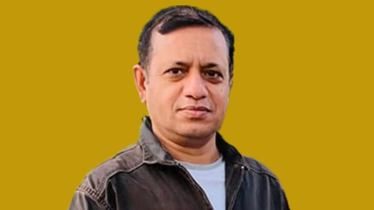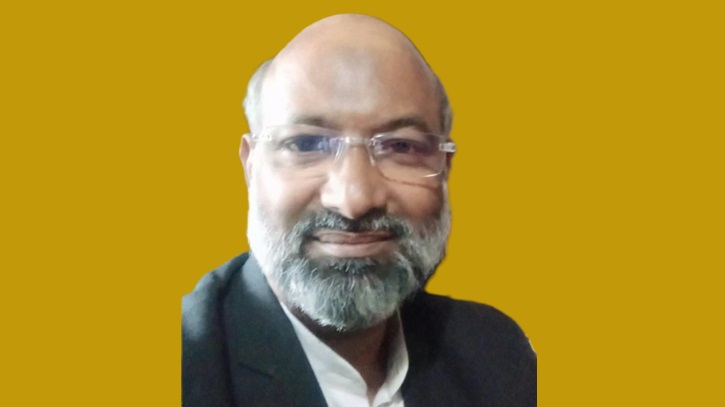
Photo: Ayub Jibon
In an age where information is abundant but accuracy is often compromised, journalists stand as essential protectors of truth. Their commitment to gathering, analyzing, and disseminating information shapes public discourse and upholds the democratic values we hold dear. Without the dedicated work of journalists, society risks falling prey to disinformation and manipulation, highlighting the critical importance of a free press in fostering informed citizenship and preserving the integrity of democracy.
A journalist, at the most fundamental level, is a professional dedicated to gathering, analyzing, and disseminating information to the public. The role of a journalist is not merely a passive activity of presenting facts; it is rooted in a deeper responsibility to truth, accuracy, fairness, and impartiality. This profession acts as one of the cornerstones of democracy, serving as the essential bridge between the world's events and the people who depend on the news to remain informed. A society without journalists would be vulnerable to disinformation, rumor, and manipulation by vested interests, making the existence of a free press critical to the survival of democracy and informed citizenship.
The history of journalism is intricately linked with the evolution of society. As early as the days of pamphleteering and primitive reporting, journalists played a vital role in shaping public discourse and holding power to account. In politics, for instance, journalists have been instrumental in molding public opinion and unearthing corruption. The muckrakers in the United States during the late 19th and early 20th centuries shed light on the harsh realities of industrialization, leading to widespread reforms. Similarly, journalists in authoritarian regimes have been pivotal in resistance movements, exposing oppression and injustices suffered by ordinary citizens. Bangladesh’s fight for independence in 1971 is a powerful example of journalism’s capacity to shape history. Journalists risked their lives to document and spread the truth of atrocities to the global community, making their contribution indispensable to the nation’s birth.
The social impact of journalism goes beyond mere political engagement. Journalists have also played a leading role in advancing social policy by raising awareness of issues like poverty, inequality, and human rights abuses. Investigative journalism has proven particularly effective in exposing the failures and inadequacies of social systems, prompting reforms. Today, journalists are at the forefront of reporting on critical issues such as climate change, labor exploitation, and racial injustice. By elevating these matters in the public consciousness, they force governments and institutions to confront these challenges, proving that journalism can be a powerful driver of social change.
Journalism’s influence extends into the realms of art and literature as well. Many literary traditions owe their brevity, clarity, and focus on truth-telling to journalistic methods. Notably, numerous great works of fiction and non-fiction have emerged from journalists, reflecting their unique ability to narrate the human condition. In Bangladesh, renowned figures like Kazi Nazrul Islam and Rabindranath Tagore were also involved in journalism, using their platforms to engage with social and political issues. These examples highlight how journalism transcends the simple relay of news and shapes broader cultural, artistic, and intellectual movements.
A critical issue in today’s media landscape is the distinction between true journalism and "broker" journalism. A true journalist operates under a strict code of ethics, valuing integrity, independence, and accountability. Their objective is to uncover the truth, regardless of the potential consequences, and to deliver information that is fact-checked and presented without bias. They reject sensationalism, focusing instead on providing balanced perspectives that empower their audience to draw their own informed conclusions.
In stark contrast, broker journalists prioritize personal gain, political patronage, or corporate interests over the pursuit of truth. These individuals manipulate or selectively present information to fit specific agendas, undermining the very foundations of journalism. Rather than serving the public, they cater to powerful entities—be it political or economic—by delivering favorable coverage or concealing damaging truths. In Bangladesh, this phenomenon is not unfamiliar. The rise of sensationalism-driven reporting, often influenced by financial incentives, has tainted public trust in the media. The credibility of journalism, a vital public institution, is jeopardized when audiences can no longer distinguish between fact-based reporting and biased narratives designed to serve special interests.
The current landscape for journalists in Bangladesh is challenging, marked by both external and internal pressures. On one hand, Bangladesh boasts a proud legacy of fearless journalism, with many reporters and editors sacrificing their safety to report the truth. On the other hand, the pressures journalists face today—ranging from censorship to legal threats, violence, and intimidation—are significant. Freedom of the press is frequently restricted in the name of maintaining public order or national security. Journalists who dare to report on sensitive issues such as government corruption, political opposition, or human rights violations often find themselves targeted by both state and non-state actors, facing harassment, legal action, or worse.
The Digital Security Act, introduced ostensibly to combat cybercrime, has been one of the most controversial developments in recent years. Its vague language has made it a powerful tool for stifling dissent. Numerous journalists have been arrested or subjected to harassment under this law, leading to widespread self-censorship. Fear of legal repercussions discourages in-depth, critical reporting, thereby reducing the quality and variety of news coverage available to the public.
Economically, the situation for journalists in Bangladesh is equally troubling. Many media outlets operate under significant financial strain, leaving journalists with inadequate pay, job insecurity, and limited professional protections. This economic vulnerability opens the door to corruption within the industry. Some journalists, unable to make a living through ethical means, may accept bribes in exchange for favorable coverage or silence on contentious issues. This practice further erodes the public’s trust in the media, as many come to see journalism as an extension of political or corporate interests rather than an independent, impartial institution.
Violence against journalists is another grave concern. Over the years, many journalists in Bangladesh have been attacked, threatened, or even killed because of their work. These incidents are rarely prosecuted, creating a culture of impunity that emboldens those who wish to silence critical voices. Both high-profile investigative journalists and local reporters covering community matters have faced such threats, contributing to a climate of fear and intimidation that stifles free expression.
Despite these challenges, hope persists within Bangladesh’s journalistic community. Many continue to carry out their work with dedication, often at great personal risk. Independent media outlets, though few in number, strive to uphold the standards of ethical journalism, maintaining their commitment to truth and accountability. Digital platforms and social media have provided new opportunities for journalists to reach their audiences, circumventing traditional gatekeepers and government controls. Ordinary citizens have also taken up the mantle of journalism through citizen reporting, using smartphones and social media to document events in real-time. However, the rise of citizen journalism has both positive and negative effects. While it democratizes the flow of information, it also increases the spread of misinformation, making it more difficult to uphold journalistic standards of verification and accuracy.
To improve the state of journalism in Bangladesh, a number of reforms must be enacted. First, the legal framework governing press freedom requires revision. The Digital Security Act should either be significantly amended or repealed to ensure that it is not used as a weapon against legitimate journalism. Stronger protections for press freedom must be put in place, alongside mechanisms to hold those who attack or intimidate journalists accountable for their actions. The government must recognize that a free press is a critical component of a healthy democracy and ensure that journalists can operate without fear of retribution.
Improving the economic conditions of journalists is another essential step. Media organizations must provide fair wages and job security, and journalists should have access to unions or other collective bargaining tools to advocate for their rights. This would help reduce journalists' vulnerability to external pressures and corruption, allowing them to perform their duties with integrity.
Training and education are also vital. Journalism is a profession that requires constant adaptation to new technologies, platforms, and ethical challenges. Regular workshops on investigative journalism, digital security, fact-checking, and ethics could empower journalists to perform their jobs more effectively in today’s rapidly evolving media landscape.
Lastly, the public must support a free and independent press. Citizens must demand accountability not only from the government but also from the media itself. By engaging critically with news content, the public can help ensure that journalism serves its intended purpose: to inform and empower the citizenry. Media literacy programs could assist in this process, helping people discern between factual reporting and misinformation.
Journalists play an indispensable role in society, acting as the watchdogs of democracy and the voices of the marginalized. In Bangladesh, however, they face considerable obstacles, from legal and financial pressures to censorship and violence. To protect the profession's integrity and ensure that the public has access to reliable, truthful information, concerted efforts must be made at every level of society. Journalists, media owners, the government, and the public must work together to safeguard press freedom and improve the working conditions of journalists. Only by doing so can Bangladesh sustain a vibrant and independent media landscape that continues to serve its people.
.Author: Columnist, Senior Lawyer of Bangladesh Supreme Court, and Director of Bangladesh Jubo Arthnitibid Forum
U

.png)

